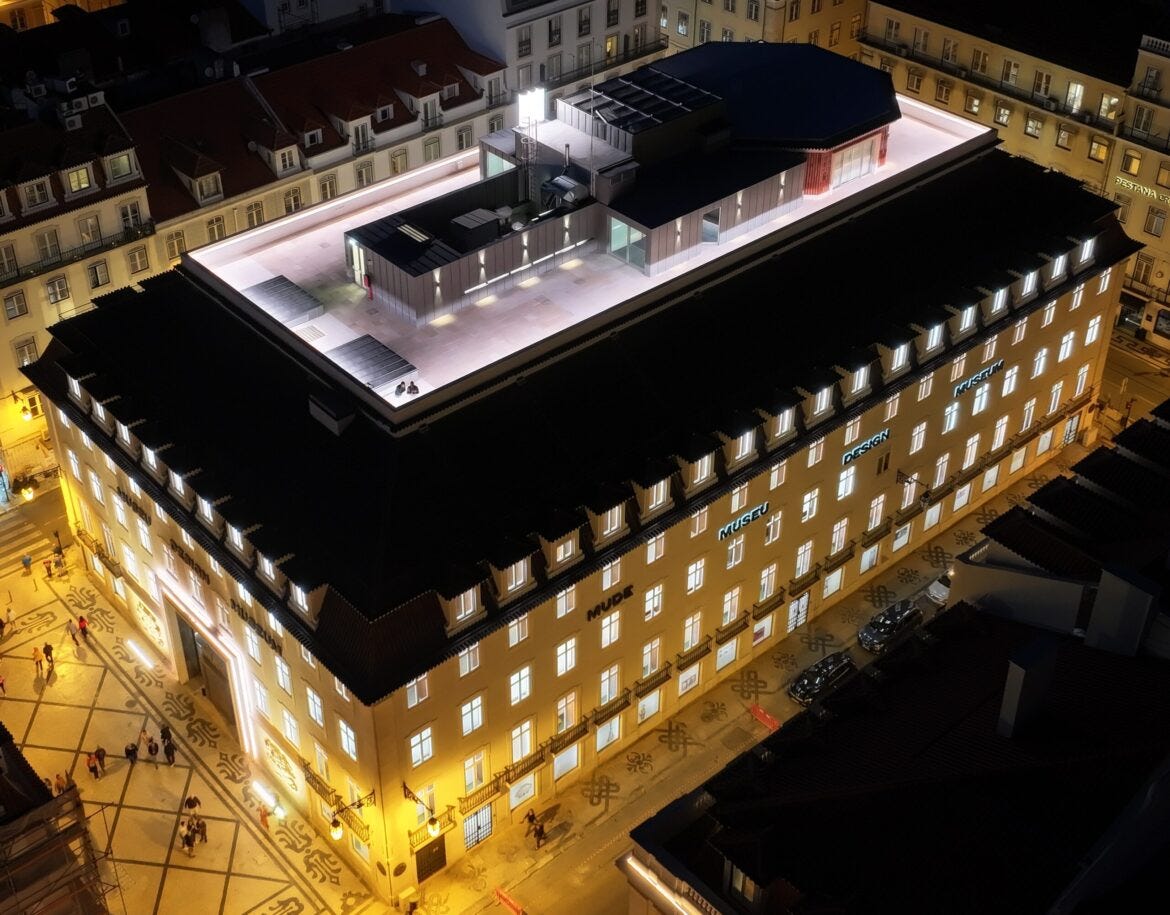Lisbon Design and Fashion Museum (MUDE) to reopen
It was closed for eight years for renovation works.
Lisbon’s Museum of Design and Fashion (MUDE) will reopen on July 25, from 7:30 pm, after eight years closed for the complete requalification work of the entire block it occupies.
The reopening will be marked by the inauguration of an exhibition, entitled “Building on Display”, which will allow those who visit the museum the “unique opportunity to tour practically the entire building and learn about its architecture, evolution, and interventions carried out, from a design perspective, throughout various eras”.
The renovation project was developed in conjunction with design, MUDE museology, architecture, and specialist projects, to provide it with all its functionality.
“The MUDE building is once again the cultural hub dedicated to all expressions of design, in the historic center of Lisbon, with areas for exhibition, creation, education, study, debate and leisure, meeting, conversation and sharing”, highlights the local authority.
The galleries for the exhibitions will occupy four floors, in open spaces, fulfilling the concept of the exhibition as an “open work”, advocated for MUDE since 2009.
In each new exhibition, the interiors are changed, allowing for different experiences and experiences.
Between the third and fourth floors, a visual connection was created that will function as “a prismatic point of opening and convergence between the observer and the entire museum”.
Structural reinforcement
The local authority highlights the structural reinforcement that was carried out to ensure the museum's anti-seismic capacity, a process that made it possible to enhance pre-existing materials (in particular, brick, concrete, and stone) and the different construction techniques applied over time.
One of the new spaces to open to the public is the library specializing in design, which has been expanded over the last 10 years and is part of the MUDE Documentation and Information Center.
With regard to furniture, “local natural raw materials and national production were prioritised, reinterpreting models that reflect Portuguese know-how and material culture and, above all, guarantee an economy of means, resources and manufacturing techniques, avoiding excess and waste”.
Lisbon City Council points out that the museum’s intention has always been to transform the building into a “living testament to design, architecture, and engineering”.
At the end of September, the long-term MUDE exhibition will open on the 3rd floor, featuring pieces from the collection, followed by the start of the temporary exhibitions on the remaining floors.
In the future, an area dedicated mainly to graphic design is planned.
Some background
MUDE closed in May 2016, for works on the eight-storey building, the former headquarters of Banco Nacional Ultramarino, but continued its activity with a programme of exhibitions, inside and outside the capital, entitled “MUDE Fora de Portas”.
Construction work on the building was halted from 2018 to May 2021 due to the insolvency of the construction company, which forced the entire project to be revised and a new international public tender to be opened, which took place in May 2021.
Dedicated to all expressions of design, which are reflected in its collection, MUDE currently has 11 collections and more than 1,000 individual pieces in the areas of product, fashion, graphics, interiors, theater sets, and contemporary jewelry.
The collection from the former Teatro da Cornucópia, which ceased operations in 2016, is one of the donations that expanded the museum's collection during this period, through its directors, co-founder Luís Miguel Cintra, and set designer, costume designer and designer Cristina Reis.
This collection comprises more than 1,400 pieces from very different areas, namely bibliography, accessories and props, graphic design, including posters and show models, many of them designed by Cristina Reis.
Opened in 2009, MUDE received, until the date of closure of the headquarters building, almost two million visitors, in almost 60 exhibitions and around 170 events related to its collection.




